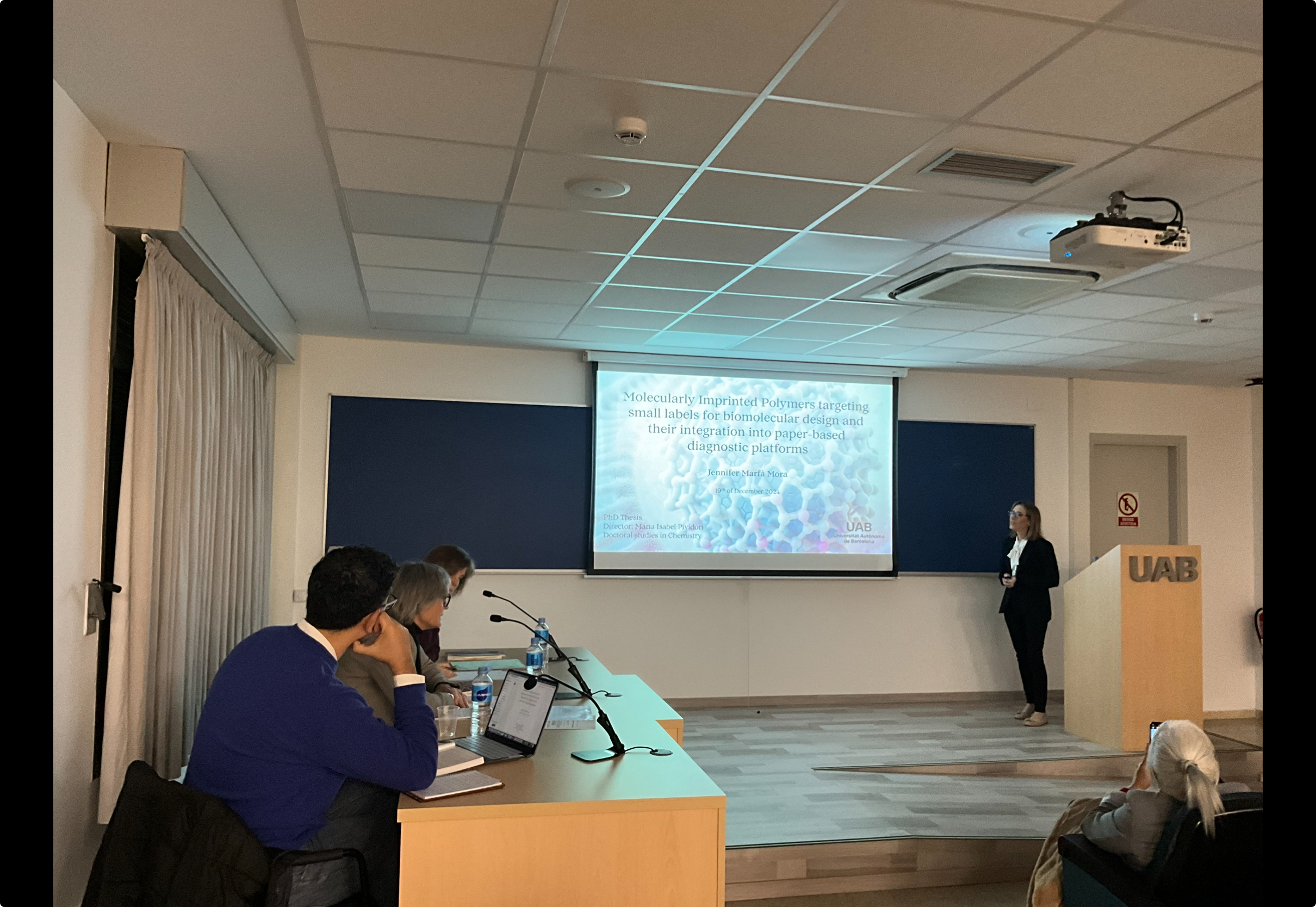On Thursday, December 19 2025, in the Sala de Graus at the Universitat Autònoma de Barcelona, Jennifer Marfà Mora presented her doctoral thesis titled “Molecularly Imprinted Polymers targeting small labels for biomolecular design and their integration into paper-based diagnostic platforms.” The examination committee was composed of Prof. Merce Martí Ripoll as president Dr. Luciano Sappia, and Dr. Susana Liébana .
Summary of the Thesis
Jennifer Marfà’s thesis explores the integration of Molecularly Imprinted Polymers (MIPs) into various diagnostic platforms. MIPs are synthetic materials designed to mimic the recognition of biological molecules, such as antibodies, but with greater stability, lower cost, and animal-free production. Her research focuses on the design of MIPs specific to small molecular tags, including biotin (BIO), digoxigenin (DIG), and 6-carboxyfluorescein (6-FAM), which are commonly used in biological and diagnostic assays.
Jennifer has developed and integrated these MIPs into different platforms, including nucleic acid lateral flow assays (NALF), vertical flow assays (NAVF), and magneto-actuated diagnostic devices. Her work demonstrates the feasibility of these materials as alternatives to conventional biological receptors, highlighting their stability, specificity, and adaptability.
Key Innovations and Findings
- MIPs for Nucleic Acid Detection:
- MIPs specific for biotin, DIG, and 6-FAM were synthesized and integrated into lateral and vertical flow tests, enabling the simultaneous detection of multiple DNA targets.
- This technology offers a more stable and accessible alternative to traditional antibodies.
- Magneto-Actuated Systems:
- Jennifer explored the synthesis and integration of magnetic MIPs (m-MIPs) into diagnostic platforms.
- These systems enable efficient magnetic separation, enhancing sensitivity in complex sample matrices.
- Portable Diagnostic Platforms:
- MIPs were integrated into electrochemical and optical devices powered by batteries, proving their feasibility for point-of-care testing in resource-limited settings.
Impact and Future Applications
Jennifer Marfà’s research opens new possibilities in molecular diagnostics and portable technologies. The flexibility of her diagnostic platform suggests applications for emerging diseases and settings where access to specialized laboratories is limited.
Additionally, her work paves the way for the development of autonomous diagnostic kits, such as portable endpoint PCR devices combined with paper-based rapid tests, which could revolutionize infectious and non-communicable disease detection on a global scale.
Congratulations to Jennifer!
With this successful defense, Jennifer Marfà Mora has reached a significant milestone in her academic career. Her dedication, hard work, and passion for research have resulted in an outstanding contribution to the field of molecular diagnostics. We congratulate her on this remarkable achievement and wish her continued success in her future endeavors. Her work will undoubtedly leave a lasting impact on the development of novel diagnostic technologies and their implementation in real-world healthcare settings.

